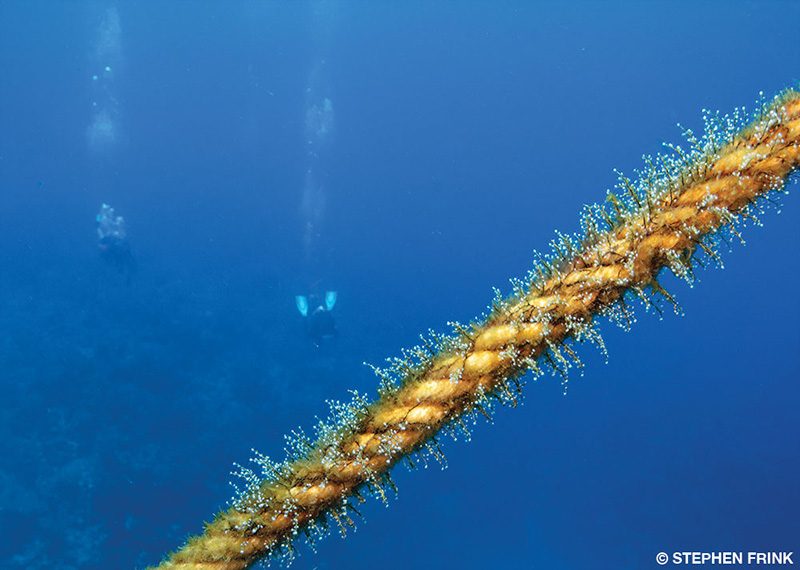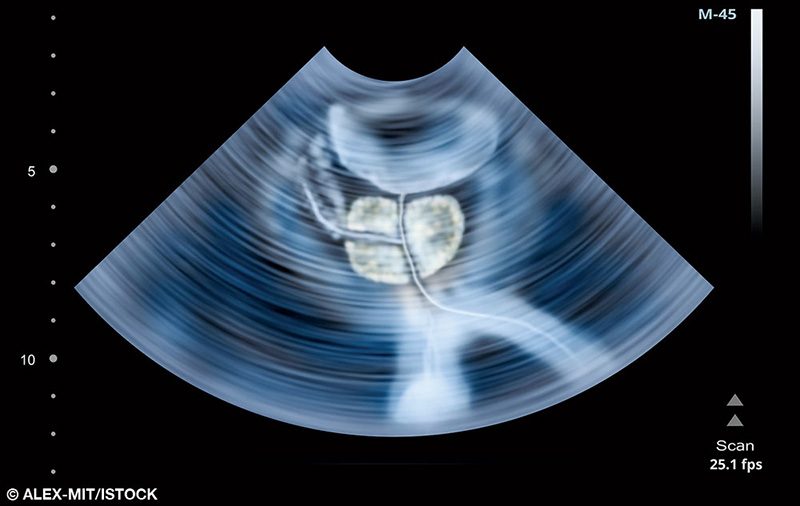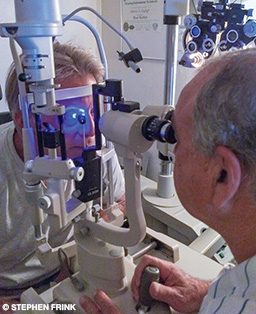DAN medical information specialists and researchers answer your dive medicine questions.
Is there any research about the effects of vaping and diving? I am an instructor and would like references to give to students who vape. They usually dismiss studies about smoking and diving because the research is not specifically about vaping.
While we do not know about any research that deals specifically with vaping and diving in combination, recent research is available on vaping itself. Although it has not yet been translated to diving, some findings will need consideration. The residuals of incomplete burning (carbon monoxide, carbon dioxide) are not the major concern in electronic cigarettes, but vapor does contain putative carcinogens (polycyclic aromatic hydrocarbon, high concentrations of nanoparticles) and toxicological compounds (carbonyls, metals, volatile organic compounds). No long-term studies for chronic diseases (e.g., chronic obstructive pulmonary disease, COPD) or cancer connected to vaping are available yet.
We will not completely understand what the aerosols from e-cigarettes do to the lungs until long-term studies are available. Other factors concern us in research related to decompression sickness (DCS) that have also recently been discussed in papers about e-cigarettes.
Cardiovascular symptoms. Cardiovascular symptoms (especially in adolescents) of varying severity occur after e-cigarette use. Animal studies using mice and rats have found an increased arterial stiffness in animals exposed to e-cigarette vapor. This finding is of interest for divers because cardiovascular health is a prerequisite for fitness-to-dive examinations and because a substantial amount of research has been undertaken in the effect of endothelial (inner layer of the blood vessel) function in DCS and breath-hold diving. Flow-mediated dilation tests have shown that diving itself already decreases arterial function.
Inflammation. Sufficient data suggest e-cigarette aerosols cause inflammation and lower immune system efficiency. It has become clearer over the past few years that the immune system and inflammatory processes are a major player in the understanding of decompression stress.
Genotoxicity. Vapor seems to cause oxidative stress (overproduction of free oxygen radicals), which in turn — if it becomes too much — can lead to DNA damage; in the case of e-cigarettes it has been shown to decrease DNA repair capacity, especially in the lungs. The effects of oxidative stress and oxidative damage in the human body are manifold and not predictable, reaching from reversible interactions with cell membranes to the development of chronic or degenerative disease.
Lungs and respiration. Literature on vaping describes increased airway resistance and upper and lower respiratory tract inflammation. Anything that tampers with the lungs and their vital capacity has the potential to be harmful for diving.
We cannot yet give you direct insight into diving and vaping, but some evidence indicates that e-cigarette vapor — although in many ways less harmful than cigarette smoke — is of greater concern than we expect today. Quitting smoking altogether is by far the best risk reducer for divers.
— Frauke Tillmans, Ph.D.

I arrived home from a dive trip five days ago. The palms of my hands are itchy and red, and the right hand is worse than the left. I was careful about where I placed my hands while diving and always used the mooring line to perform my safety stops. During the week I briefly felt some itching on my right hand, but it resolved. I have no idea what is wrong. Someone suggested skin bends — is that possible?
Based on the description of your symptoms and their location, a marine life injury is more likely than DCS. You are to be commended for being conscious of your hand placement when diving. The mooring lines are likely the source of the injury. Organisms in the hydroid family colonize mooring lines and give stings similar to those from jellyfish or other organisms that have nematocysts.
It is not unusual to experience delayed symptom onset. Some divers have obvious initial symptoms that resolve and then manifest again days later. Dermatologists refer to this as a delayed hypersensitivity reaction. Topical hydrocortisone cream is a reasonable first treatment. If the symptoms do not improve within 48 hours of treatment or if they continue to worsen, see a medical professional. A more definitive treatment is a course of oral steroids (e.g., prednisone), which requires a prescription. You or your doctor can contact DAN with any questions.
— Marty McCafferty, EMT-P, DMT

I am a 74-year-old, very fit diver with more than 40 years of diving experience. I am currently undergoing radiation treatment for prostate cancer. My oncologist inserted a hydrogel blocker between my prostate and my rectum to act as a sacrificial element during radiation, and I am told that it will be absorbed into my urine and expelled in about six months. I am hoping to dive as soon as my treatment is over, but will I risk moving the blocker because of compression?
Diving is not likely to affect the hydrogel pad, but active prostate cancer treatment is a larger concern. Besides the general debilitation caused by cancer and its treatment, there is the risk of urinary blockages caused by inflammation to the area and other side effects of radiation such as tissue damage. A sudden onset of urinary blockage or other medical issues related to your treatment could be confused with spinal DCS, resulting in an unnecessary hyperbaric chamber treatment. It is unlikely that the necessary supplies and training to treat a sudden urinary emergency, such as with a Foley catheter insertion, will be accessible on a dive boat or at a dive site.
Our medical director recommends completing the treatment and a six-month recuperation period before diving. After your follow-up appointments, your oncologist may determine that you are recovered enough to clear you to dive. If your oncologist is not familiar with dive medicine or has questions or concerns, DAN dive medicine doctors are available for a consultation.
— Sheryl Shea, RN, CHT

I was recently treated for a retinal detachment, and I still have a small gas bubble. Can I dive this weekend?
A retinal detachment is very serious and should be treated urgently due to the risk of permanent vision loss in the affected eye. It occurs when the retina at the back of the eye separates from its normal position, which can occur spontaneously or as the result of an injury. Symptoms can include sudden floaters, flashes of light, blurred vision, a reduction of peripheral vision and a shadow over the field of vision.
Surgery is required to repair a detached retina, but the type of surgery depends largely on how severe the detachment is and what method your surgeon feels is best for you. Pneumatic retinopexy involves injecting a bubble of gas into the fluid (vitreous) cavity. The bubble pushes the affected area of the retina against the eye wall, preventing fluid from collecting in the space behind the retina. The surgeon then repairs the detachment by freezing the area, causing a scar that secures the retina to the eye wall. Another option is a scleral buckle, where the surgeon sews a piece of silicone material over the detachment and secures it to the sclera (white) of your eye. The third option, a vitrectomy, is removal of the vitreous and any other tissue pulling on the retina from the vitreous space. The surgeon replaces the fluid and tissue by injecting a gas bubble or silicone oil into the vitreous space, flattening the retina.
The recommended waiting period after a retinal detachment repair is a minimum of two months regardless of the procedure performed. With pneumatic retinopexy or vitrectomy, additional time may be required to allow all intraocular gas to be reabsorbed. Any presence of a gas bubble will delay your return to diving since any changes in pressure could cause intraocular barotrauma (a pressure injury) resulting in intraocular hemorrhage (bleeding). It is important to always follow the advice of your surgeon.
After surgery, the integrity of the eyeball may be weakened and more susceptible to rupture in the case of direct trauma. You can mitigate this risk by avoiding mask squeeze: Exhale through the nose, and remember to always keep your face mask on your face to prevent injury.
— Lana Sorrell, EMT, DMT
© Alert Diver — Q3 Summer 2019